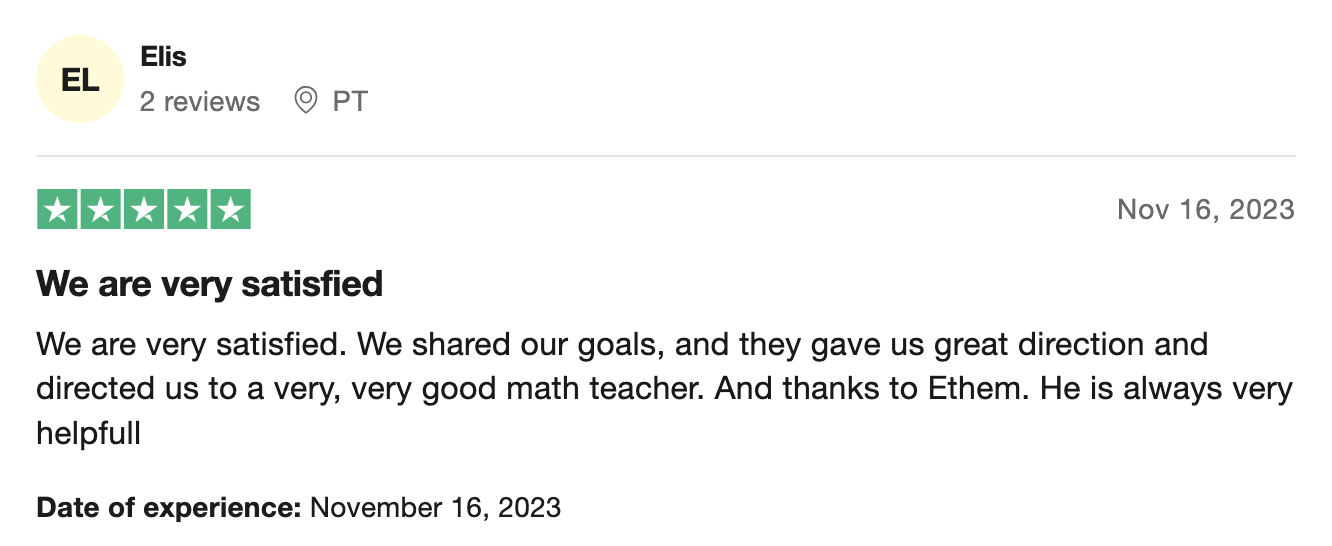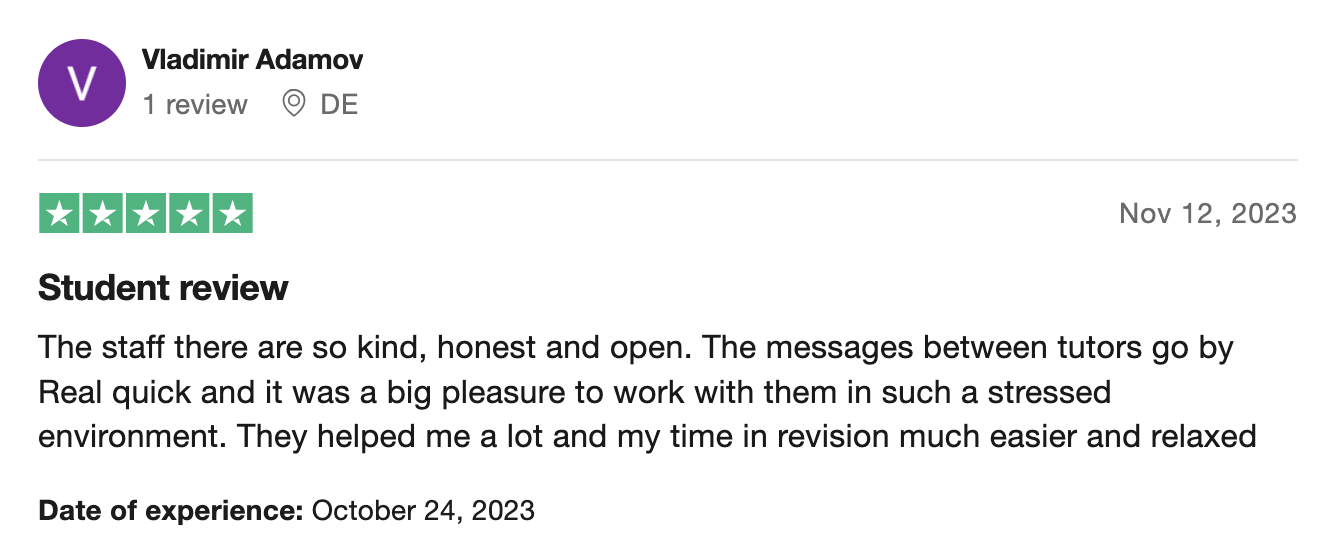IB Exam Retakes: Save Your IB Diploma (Or Boost Your IB Scores)
As we wrap up the IB final exams, there’s a burning insecurity that lingers in the minds of many students:
“What If I don’t get my predicted IB score?” Or worse… “What if I fail my IB exams?”
We all make mistakes sometimes, and while failing isn’t the end of the world, the prospect of potentially getting our university offers rescinded can be a little scary.
Nonetheless, the IB provides its students with a back up plan for the worst case scenario: IB exam retakes. Let’s take a look at the most common questions we get as IB tutors.
So, can I retake my IB exams if I failed or didn’t do as well as I hoped?
Absolutely! If your IB exam scores aren’t what you hoped for, you have the option to retake any of your exams in the next session. Whether you’re aiming to improve a single subject score or several, the IB program is designed to give you this second chance.
Here’s how it works:
Registration: You’ll need to register for your retakes through your IB coordinator. Keep an eye on deadlines to make sure you don’t miss out.
Preparation: Use the time leading up to the retake to shore up your weaknesses. This might be a great time to consider a tutor who can focus on targeted areas and maximize your chances of improvement.
Retaking exams can be a strategic move to not only increase your scores for university admission, but also to potentially save your IB Diploma if the worst case scenario of failing occurs.
Do I have to retake all of my IB exams or can I just retake the IB subject I choose?
As we just mentioned above, the retake format is relatively flexible - you don’t have to retake all your exams if you don’t need or want to. You can retake just one subject, several subjects, or all your subjects, depending on your goals.
Consider which subjects are most critical for your university application or career goals. Improving scores in these areas can significantly impact your future opportunities. By retaking only necessary subjects, you can allocate more time to hone in on specific areas of weakness, making your study sessions more effective and manageable.
Top 5 Reasons Students Have to Retake IB Exams:
If you’re in the unfortunate situation of having to retake your IB exams chances are things didn’t go exactly as planned. Here are the main reasons students end up retaking:
Poor Performance: Underestimating the difficulty of the content or inadequate preparation often leads to lower scores than necessary for passing or achieving desired academic or career goals.
Missing the Exam: Whether due to miscommunication, logistical issues, or personal oversights like oversleeping, missing an exam is a straightforward reason for needing a retake.
Health Issues or Emergencies: Acute health problems or personal emergencies that occur during the examination period can significantly impact performance.
Technical or Procedural Errors: Rarely, there may be exam administration errors, such as incorrect question papers being distributed, or technical issues if exams are conducted online.
Strategic Improvement: Some students choose to retake exams not because they failed but to improve their scores for competitive university programs or scholarships.
It’s important to reiterate that if the exams weren’t easy the first time around, they’re not getting any simpler for the retakes.
Consider the retake as a second chance to truly prepare: don’t skimp on those study resources and materials, and if you haven’t yet, please consider reaching out to an experienced IB tutor.
We’ve all been through the IB ourselves, so we understand the struggle and have figured out the shortcuts to getting good results first hand.
Plus if you do decide to work with us, we’ll provide all of the necessary materials including practice exams, so you’ll be set and ready to get this retake out of the way!
Retake vs. Remark:
Retake: When you retake an exam, you're essentially giving it another shot. This is best if you think you can improve your knowledge and exam technique to boost your scores.
Remark: Opting for a remark means having your existing exam papers graded again to double check the marking was fair. It's a good move if you suspect an error in the initial grading. Obviously this doesn't require any additional studying, and the outcome might adjust your score up or down, or it may stay the same. Remarks must be requested shortly after results are released, typically within a specific window that can be as brief as a few weeks. It's crucial to act quickly if you choose this route, and you'll need to coordinate with your IB coordinator to initiate the process.
Choosing between a retake and a remark depends on whether you want to improve your preparation or simply verify the scores you received.
When are IB exam retakes held?
IB exam retakes are typically scheduled twice a year, providing students with opportunities to improve their scores relatively soon after receiving their results.
November Session: For those who participated in the May IB exam session, retakes are available in November of the same year. This allows for a quick turnaround to revisit the IB subjects that didn't go as planned.
May Session: If you took your IB exams in November or prefer more time to prepare, you can opt for the May retake session the following year. This gives you ample time to review and strengthen your understanding of the material.
Try to start planning early. Consult your IB coordinator as soon as possible to confirm the exact dates and deadlines for registration. Depending on the retake session you choose, your preparation strategy might differ. A shorter prep time for November retakes means a more intensive study schedule, whereas opting for May retakes allows for a paced, thorough review.
Choosing the right session may also depend on when you’re meant to begin /apply for university.
Will my university offer be rejected If I fail the IB?
The impact of failing the IB Diploma on your university offer depends largely on the specific requirements of the universities to which you have applied.
Many universities issue conditional offers based on achieving a certain IB score. If your final scores fall short of these conditions, the offer could potentially be withdrawn. However, universities often review cases individually, especially if you're close to meeting the requirements.
If you find yourself in this situation, it's crucial to communicate directly with the admissions office. Explain your circumstances and discuss possible options, such as retaking certain exams.
If you choose to retake your exams to meet the offer conditions, make sure to inform the university. Some institutions may allow you to start your studies provisionally while awaiting retake results, but this varies by university and program.
Ultimately, not all hope is lost if you fail parts of your IB. With timely action and open communication, you may still be able to salvage your university placement.
Will I still graduate high school if I fail the IB?
Graduating from high school despite failing the IB exams can depend on your school’s specific requirements for graduation.
Many high schools have different criteria for earning a high school diploma versus the IB Diploma. It’s common for schools to have a separate set of requirements that are independent of the IB curriculum.
In some regions, the completion of certain courses or credits outside of the IB curriculum might suffice for high school graduation. Make sure to check with your high school’s administration to understand what’s required.
If your school integrates IB scores into graduation requirements, failing to meet the IB diploma standards might still allow you to graduate with another form of certification.
To ensure you’re on track for graduation, have a discussion with your high school counselor. They can provide clarity on your status and what steps, if any, you might need to take to secure your high school diploma.
Can I retake my Extended Essay and TOK essay?
Yes, you can retake or redo certain elements like your Extended Essay (EE) or Theory of Knowledge (TOK) essay as part of your IB exam retakes, though there are specific guidelines you must follow:
Extended Essay (EE) and TOK: Redoing your EE or TOK may involve writing a new essay or significantly revising your original submission. TOK prompts are given to students by the IB annually so it's important to coordinate with your IB coordinator to understand the specific requirements and deadlines for resubmission.
Creativity, Activity, Service (CAS): While CAS doesn't typically involve a retake, it’s worth checking that all components of your CAS activities meet the program’s requirements for earning the diploma.
What if my school doesn’t offer IB exam retakes?
In theory, it should be possible to retake your IB exams at another IB World School if your own school does not offer retake options. You'll need to locate another IB World School that allows external candidates to sit for exams. This might require some research and reaching out to several schools to understand their policies.
Once you find a school willing to host your retakes, coordinate with the IB coordinator there to register for your exams. They will guide you through their specific registration process and inform you of any associated costs.
Consider the logistics such as travel and accommodation if the school is not nearby, as well as how you will prepare for exams in a potentially unfamiliar environment.
Can I retake the IB exam if I already joined college?
Yes, you can retake IB exams even after starting college. Many students do so during the November session, which often coincides with their first semester of college. Balancing college coursework with exam prep requires good planning, but it's definitely manageable. Leveraging college resources and possibly adjusting your course load can help you effectively prepare for the retakes without overwhelming yourself.
How much does it cost to retake an exam?
The cost of retaking IB exams can vary significantly depending on your school and the country in which you are retaking the exam.
Registration Fees: Each subject retake typically incurs a registration fee. This fee can range from a few hundred dollars per subject, but exact costs should be confirmed with your school’s IB coordinator.
Additional Costs: Beyond the registration fees, there may be administrative fees or other charges related to the coordination of the retake at your school or another testing center.
Financial Planning: It's important to budget for these costs as part of your retake decision including additional resources such as courses or tutoring to help secure a high score.
Given the financial and time commitment required, it's a good idea to weigh the benefits of improving your scores against the costs of retaking the exams. Thorough preparation to maximize the likelihood of achieving your desired results will make your investment worthwhile.
Ace Your IB Exam Retakes
As experienced IB tutors, every year we help students make sure their IB exam retakes are successful so that they can move on to the next stage of their academic journey.
Reach out to us for personalized support for your exam retakes, and we’re gonna make sure you ace it this time.



